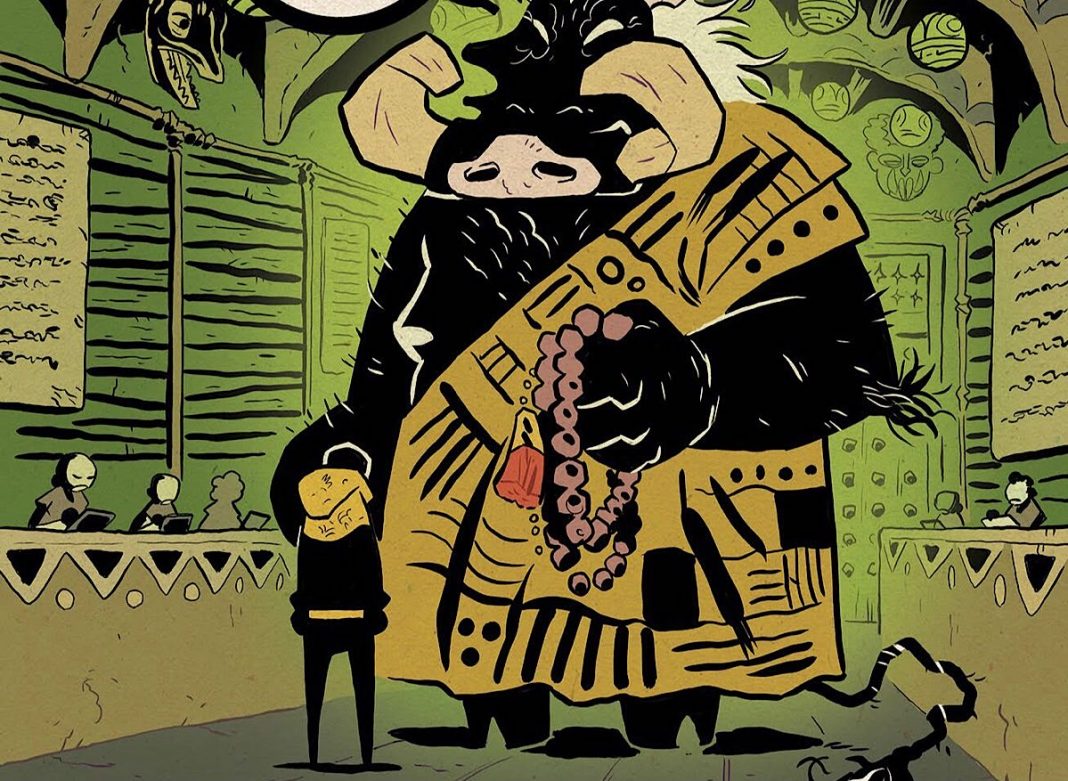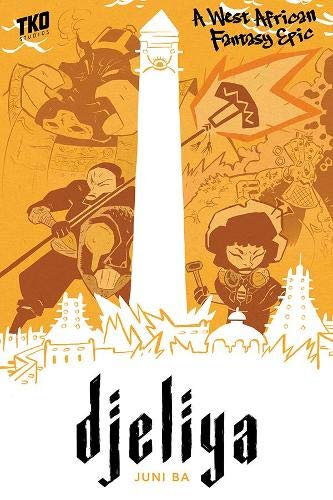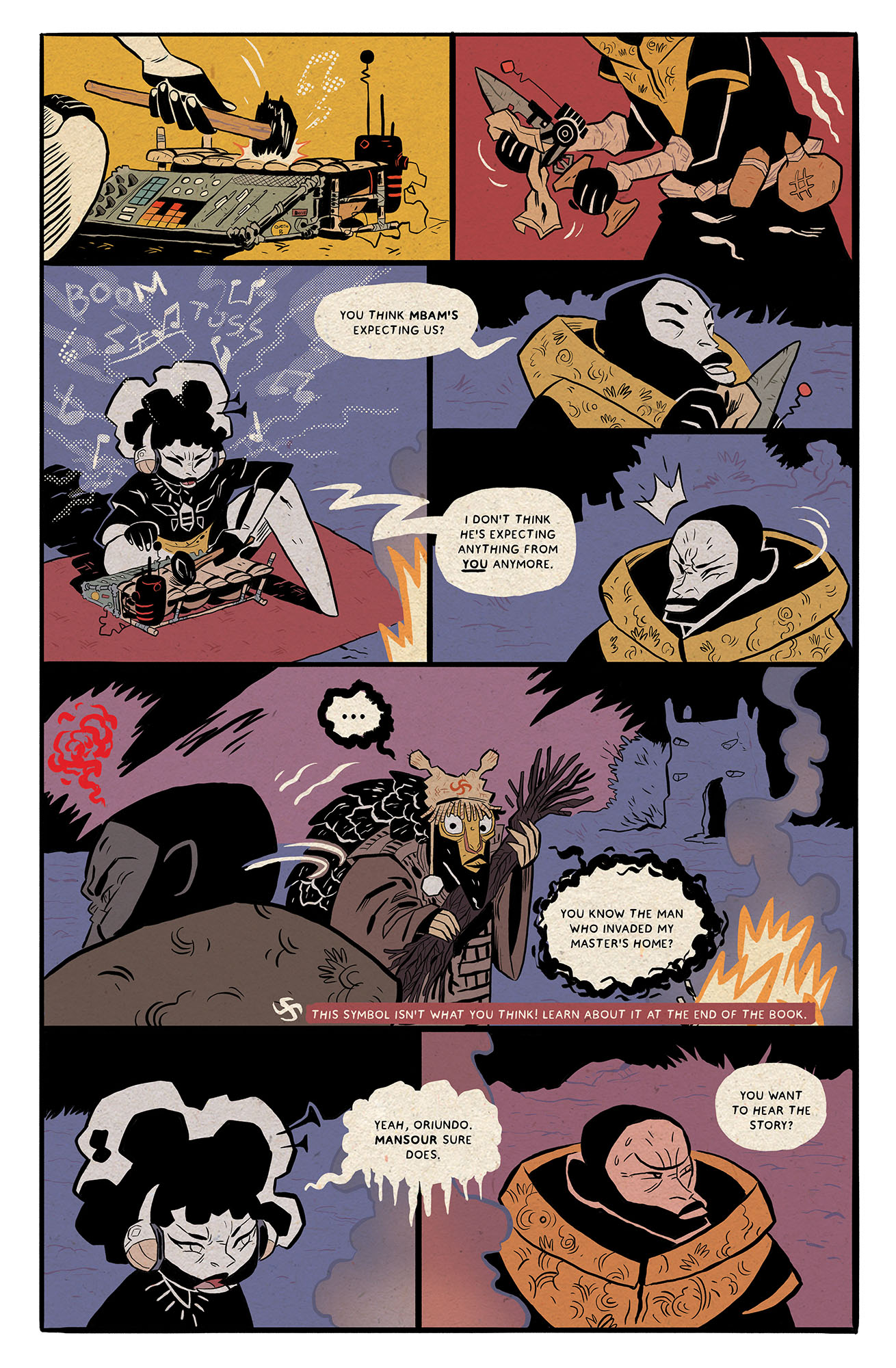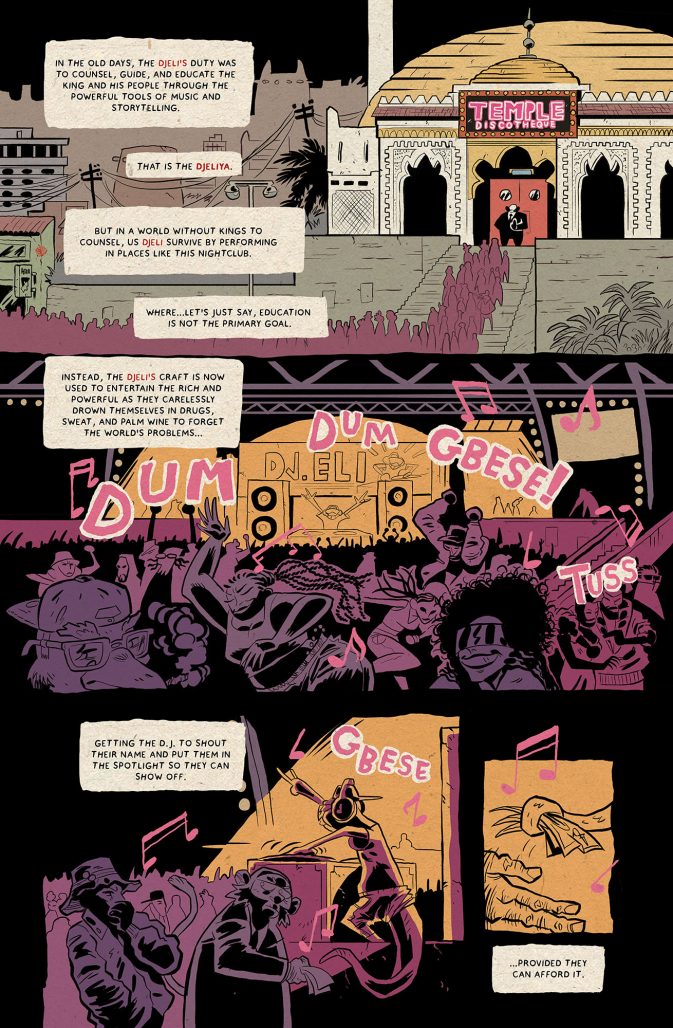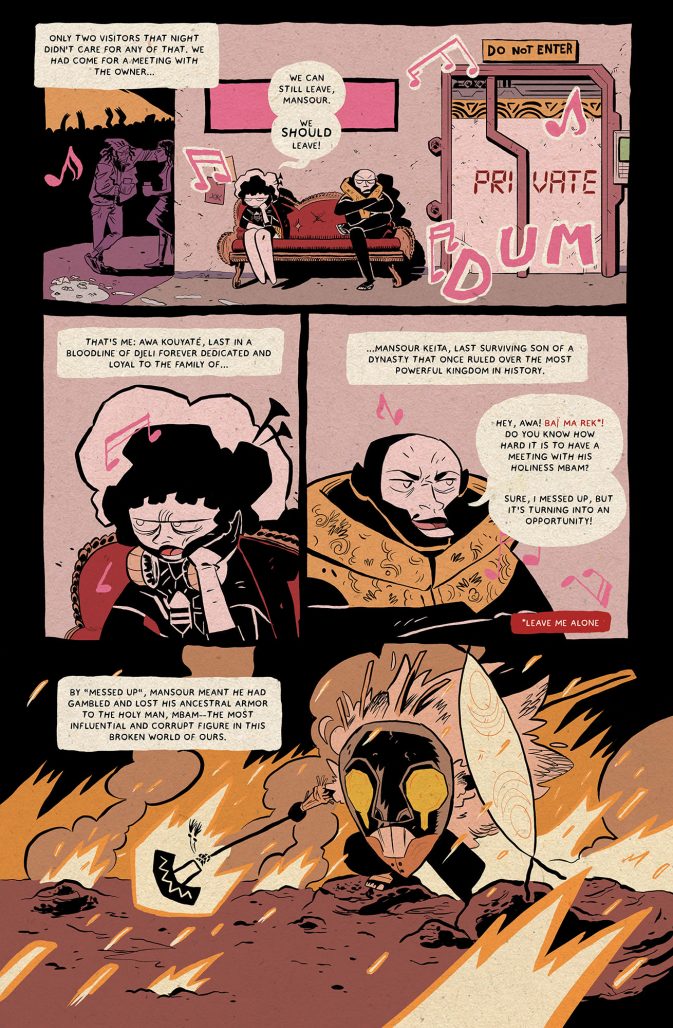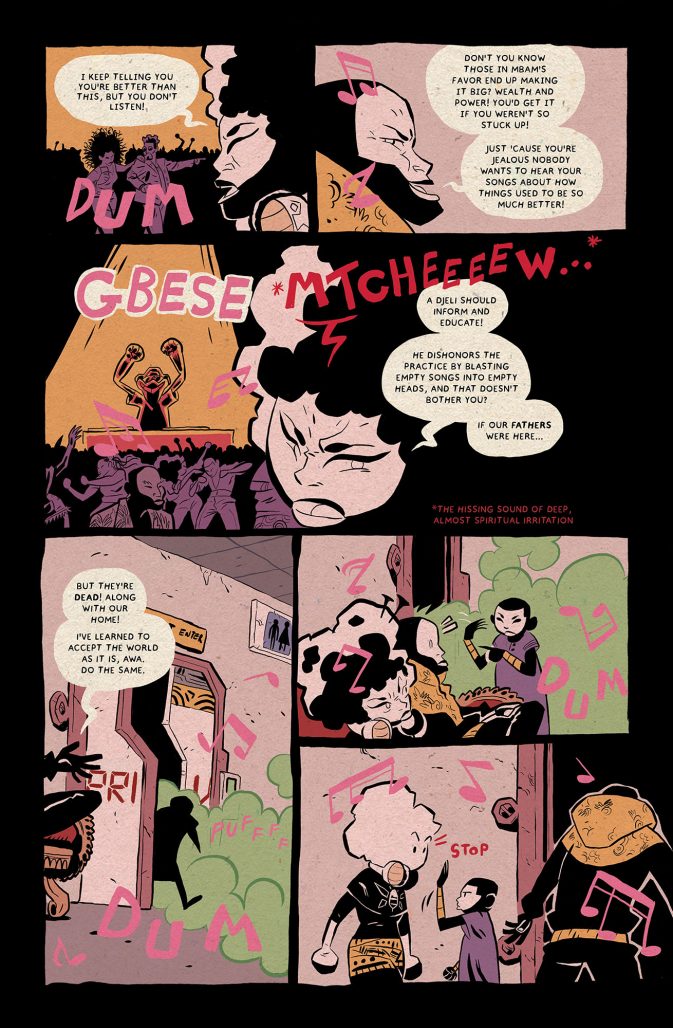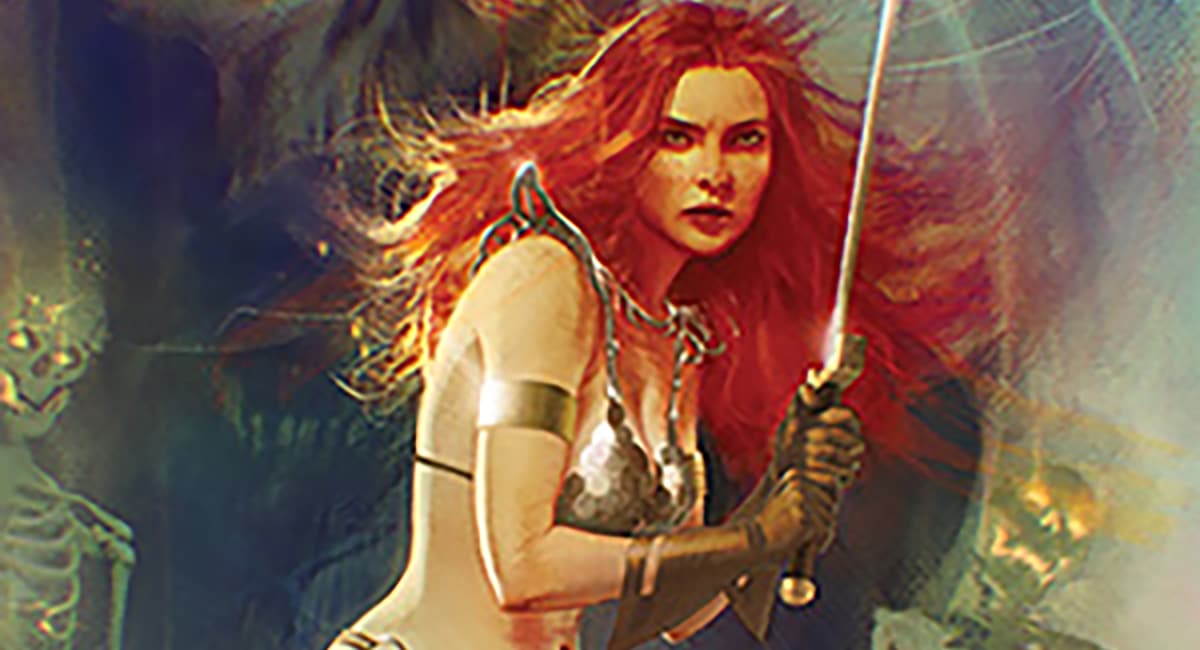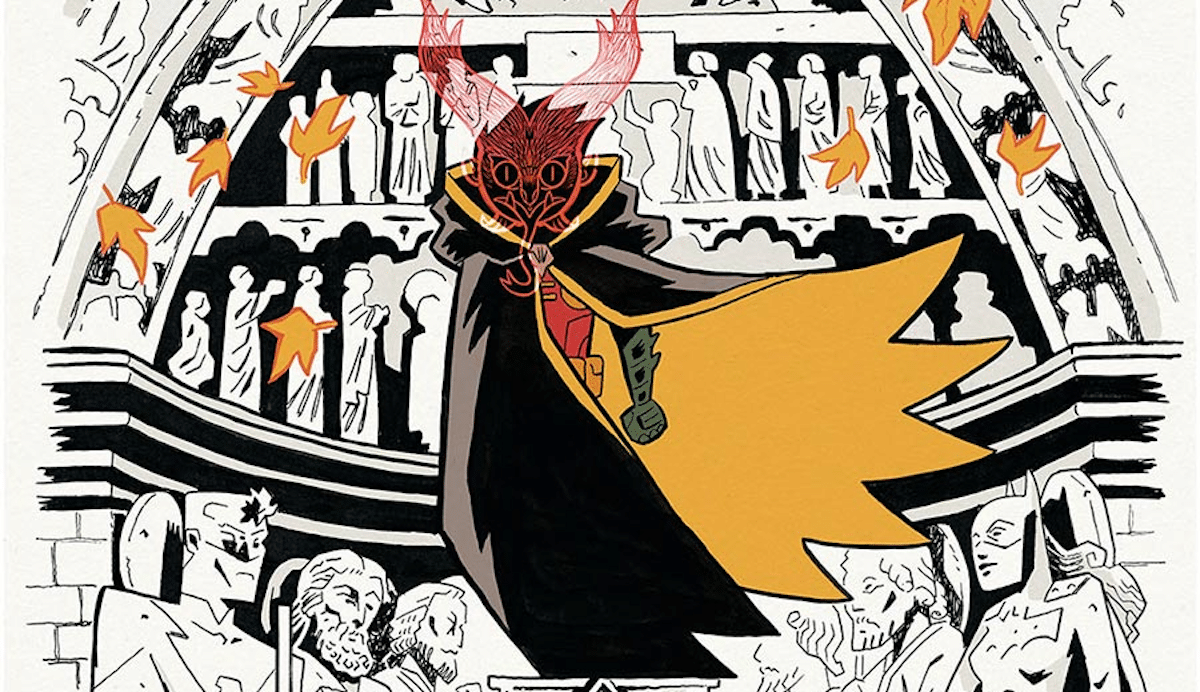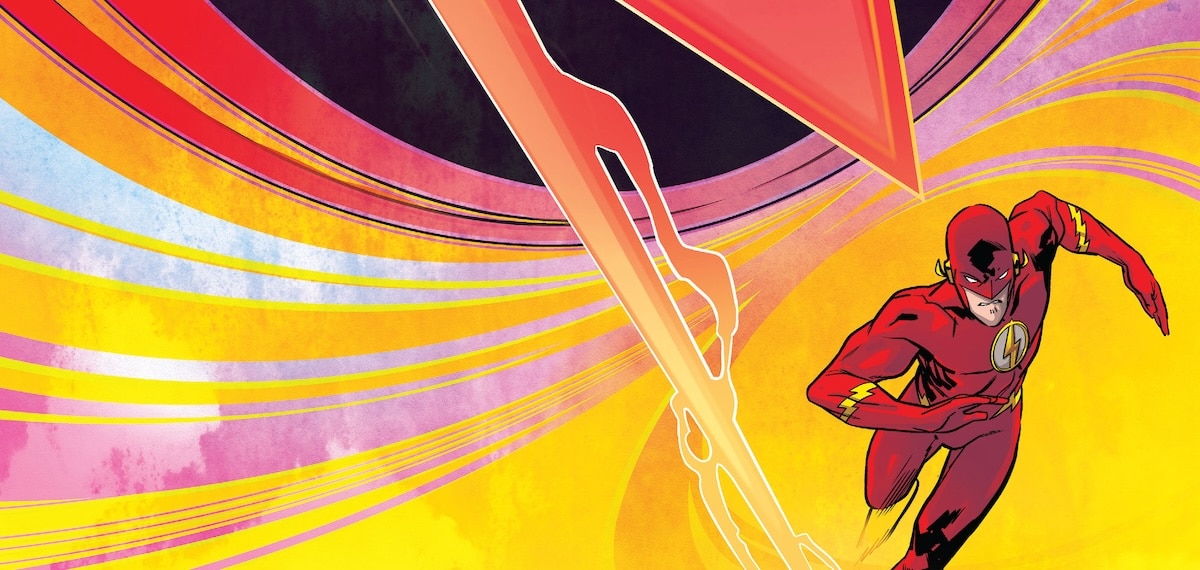
There was a lot of buzz when TKO Studios announced the publication of Djeliya, and rightfully so. Juni Ba’s electrifying graphic novel debut is a gorgeously illustrated, post-apocalyptic fantasy based on West African folklore that examines how greed shapes human nature.
Prince Mansour and Awa, his royal storyteller (a.k.a. the djeliya, pronounced ja-LEE-ah), travel through a devastated landscape in search of a mysterious wizard named Soumaoro. Soumaoro is the key to a fearsome power which once destroyed their homeland, which many unscrupulous characters in the world wish to harness for themselves. In the course of their journey, Awa and Prince Mansour revisit the traditions and stories that nurtured their people, and Awa awakens to discover her true purpose in serving as the last djeliya.
Ba talked to The Beat about the childhood stories and influences that impacted the world-building of Djeliya. You can find that, as well as a preview of the book, below.
Nancy Powell: Can you tell us how you first discovered comics? What books first got you thinking, “I can do this for a career!”?
Juni Ba: My oldest comic is a book called Spirou, a Belgian series of adventures from various authors throughout the era. Then there was a steady flow of comics of all kinds from Europe and Japan with a few American ones here and there.
I think the epiphany that it was a job I could do, though, came from the idea of making Sonic the Hedgehog comics myself at 11. From then it was a decision that I would be drawing, and comics was the easiest way to get to a narratively satisfying end product by myself with just a pen and paper.
Powell: Did moving to France and studying art as a university student influence the types of stories you wanted to tell?
Ba: It certainly forced a distance from the country I grew up in, which also means a deeper appreciation of it. You miss what isn’t readily present, and so you develop a greater interest to compensate.
But moving to France also allowed me to have access to way more books, exhibits and other life experiences that definitely broadened my world and are gonna be responsible for a lot of the things I create in the future.
Powell: Djeliya was really unexpectedly good—a little violent, but so beautiful at the same time! Can you talk about the folk tale on which the book was based?
Ba: There’s a lot of different fictional and historical sources for this. It’s a mix of a lot of inspirations to pull an original narrative. I can however point to the work of Amadou Hampâté Bâ and the epic of Sundiata Keita as two big inspirations.
Powell: I was expecting more of a traditional and historic tale, but you added some modern twists into the story—like the big music festival scene at the beginning of the story. Why was it important to give the story a more futuristic feel?
Ba: I wouldn’t even call it futuristic! Everything in here is either straight from my childhood or a fantasy version of it, all the characters live like we live in Senegal. It’s just that everything has a bit of a fun twist to it like making boats fly.
Powell: Can you describe the approach you took in developing your vision for this book?
Ba: Three years of observing and drawing African art of various origins. Learning the meaning and symbolism of icons and shapes, as well as reading a lot of stories while also pulling from personal experience to figure out what subject matter i wanted to tackle. It took years just to develop the aesthetic and then it was a matter of figuring out what the story would be. I learned to write and draw as I was making this.
Powell: Awa is a really great character! She grows so much in the course of the story, from a naïve kind of fangirl to bold heroine and champion. Is Awa based on any particular person in literature or in real life?
Ba: Yes, me! Both characters are very much based on an aspect of my own psyche. Of course, they also pull from family members or public figures (I could point to Chimamanda Adichie) but most of them is pulled from my own personality and questions. Because I know how I think and it’s easier to write characters that way. Especially when it’s your first attempt.
Powell: What is your favorite comic book or manga title?
Ba: Comic…it would have to be Hellboy. Manga? Shaman King and Full Metal Alchemist are forever battling for my heart.
Powell: What comics or comic book artists are you currently reading?
Ba: The irony is I’m moving away from reading comics, to try to widen my artistic focus and pull from other inspirations. So, I’d say my current darling is JC Leyendecker!
But comic-wise, Chris Samnee, Jordie Bellaire and Ronald Wimberly are still among my big inspirations.
Powell: Do you plan on bringing any other African folktales to the visual page?
Ba: Probably! I think what can be expected is to see me blend African elements into things that are not solely focused on African lore the way Djeliya is. My next project is a good example of that.
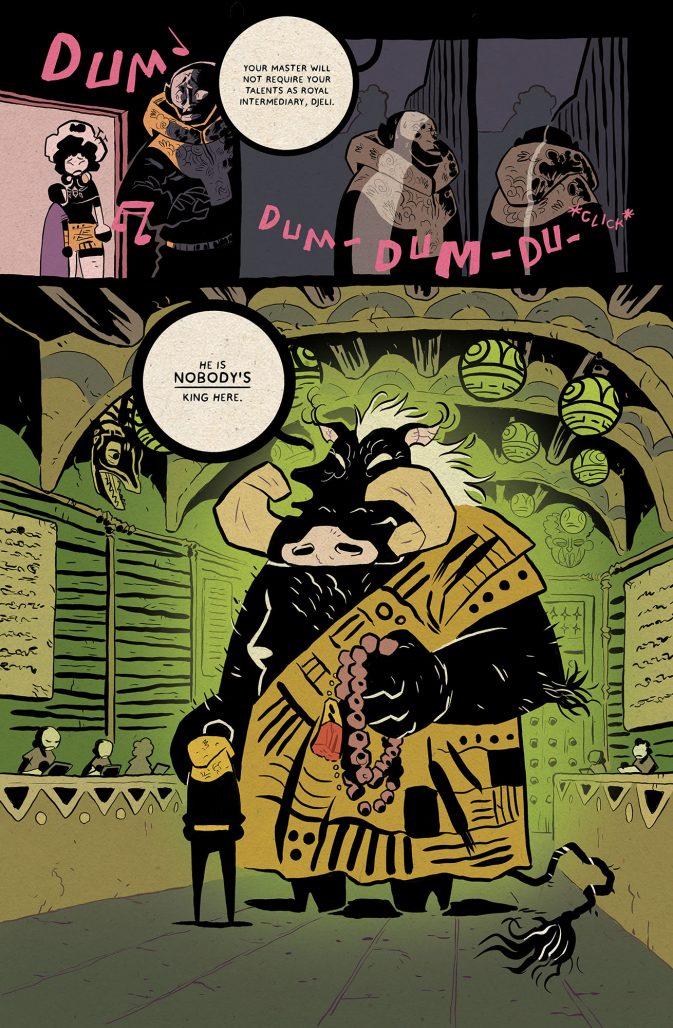
Published by TKO Studios, Djeliya arrives in bookstores on Tuesday, July 6th.


